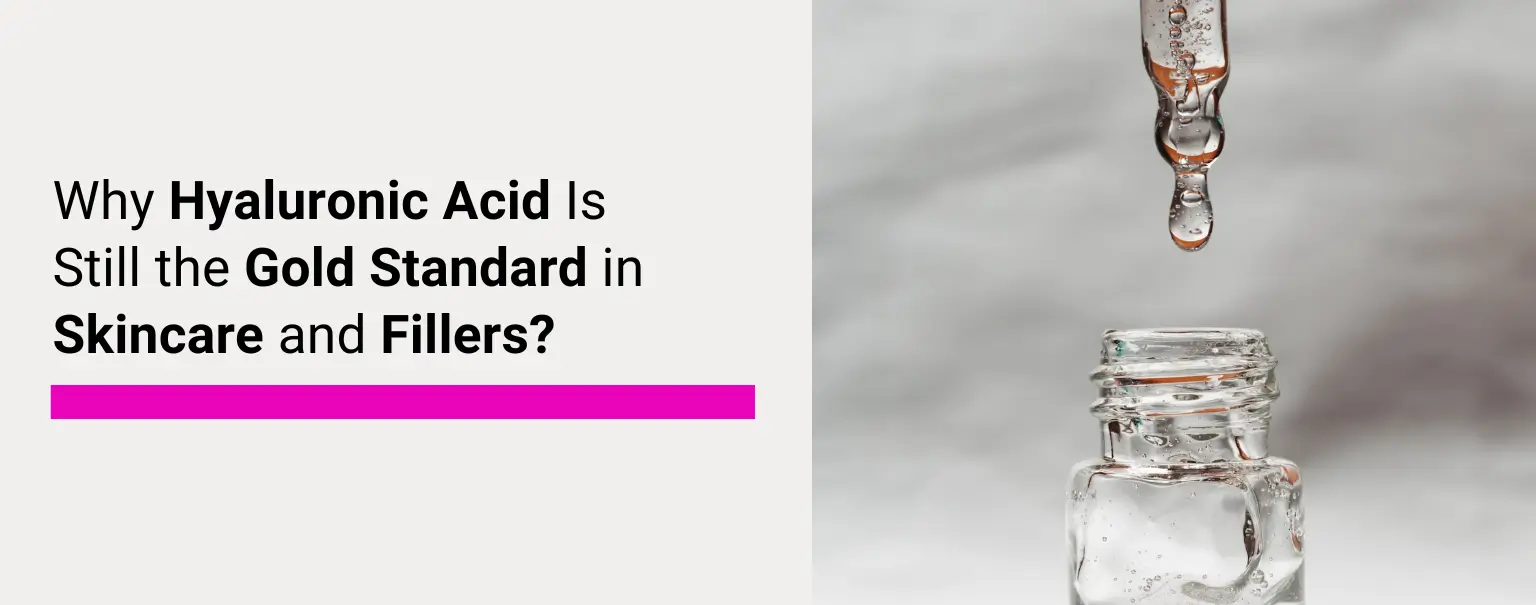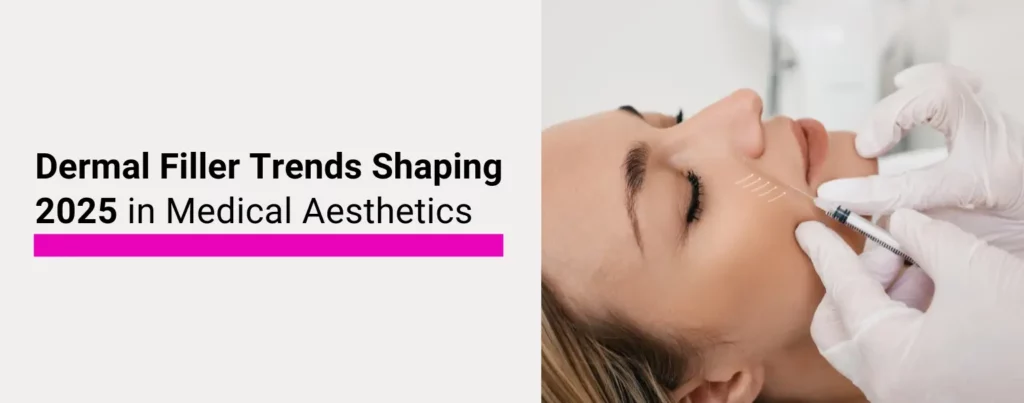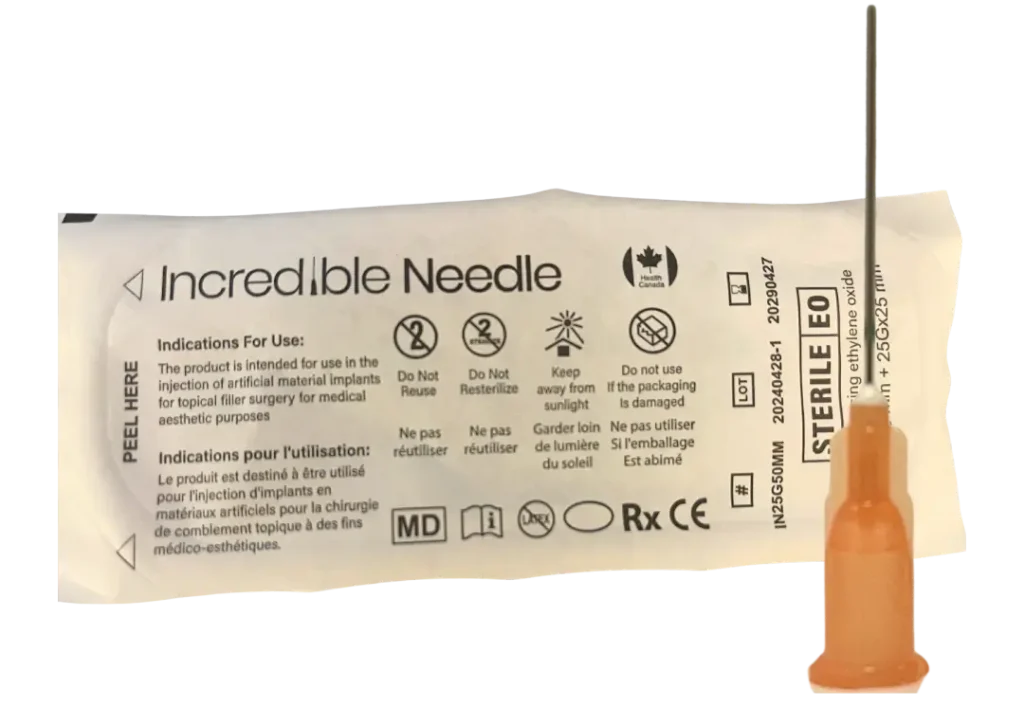Have you heard about the fountain of youth? That’s what we call hyaluronic acid, used in medspas for fillers.
If there’s one thing every skincare expert truly considers the Gold Standard in beauty treatments, it’s hyaluronic acid. From the serums that grace your vanity to the fillers redefining the contours of faces everywhere, hyaluronic acid has found its place in the limelight.
But what’s the secret behind its enduring popularity? In an industry obsessed with “what’s next,” why is it that hyaluronic acid is still preferred?
Spoiler alert: It’s not just marketing hype! It’s all about science and innovation.
Let’s explain why this ingredient isn’t just a fleeting trend but a timeless beauty essential.
How Hyaluronic Acid Works Its Magic in Skincare
Known as a humectant, hyaluronic acid is added to skincare products as it retains moisture. It holds 1,000 times more water weight than any other cosmetic agent. And this is one of the biggest reasons why it is considered the gold standard in skin health ingredients.
Here’s how it improves the skin:
The Science
The two main types of hyaluronic acid are low and high molecular weight. Both are used in skincare products. Until recently, hyaluronic acid was primarily a high-weight molecule. This means that a large weight provides significant advantages despite being too large to penetrate the skin. Low-weight HA molecules are a novel technology that can penetrate the skin deeper since they are considerably smaller.
According to a study published in the Journal of Dovepress, over the past few years, hyaluronic acid has gained popularity as a soft tissue filler agent. With several innovative products that patients can utilize, it has contributed to a revolution in the filler market.
The study looked at the efficacy of several brands, including Restylane®, Juvéderm™, Belotero, and more. Results showed that the fillers used had significant effects on the patients. All of them experienced some level of improvement during the entire course of the clinical trial.
Hyaluronic Acid as a Hydrator
The moment hyaluronic acid enters your body, it hydrates the skin from within. High-weight HA plumps and hydrates skin immediately and low-weight HA offers a prolonged effect.
By decreasing trans-epidermal water loss, the skin’s natural barrier is strengthened, which makes it perfect for maintaining the health and protection of all skin types, even those with sensitive skin conditions. Lastly, it reduces wrinkles and fine lines to make the skin appear firmer, plumper, and more even.
What Does Hyaluronic Acid Do for Your Skin?
Hyaluronic acid is not a true “acid.”
Acid often refers to exfoliation in skin care. Hyaluronic acid, which is utilized in skin care products, has a pH that is not low enough to exfoliate skin. Instead, it is the reverse, making it effective and safe for even sensitive skin.
Hyaluronic acid can be compared to a tall glass of water. By penetrating the skin and binding water to your skin cells, it provides vital, revitalizing hydration to all skin layers. The primary purpose of our skin is to keep us safe. It goes without saying that the skin shields our internal bones, organs, muscles, and other structures from the environment. However, our skin also shields the body from dangerous toxins that we are constantly exposed to.
External damage (toxins) mostly affects the epidermis, the topmost skin layer. The lipid barrier in the epidermis, which is made up of fatty acids that retain water and keep irritants out of the skin, slows down with age. Damage can come from various sources, including UV radiation, environmental contaminants, and lifestyle decisions like smoking. The results of this damage are dark spots, drier skin, and more wrinkles and fine lines.
HA’s Hydrating Action
Hyaluronic acid strengthens the skin’s natural barriers against moisture loss, allowing it to provide a more intense hydrating action. This can help fortify and preserve the lipid barrier over time by slowing down its degradation.
Everyone wants youthful skin. As we age, the skin’s elastin breaks down, losing its snap. A quick trick to find out if your skin has that bounce is to pinch the top layer hard. If it goes back to normal quickly, your skin is still young. Try this test on your grandmother, and you will know what we are talking about.
Remember that hyaluronic acid does not replace elastin. However, it does make the skin appear tight. When the skin fills with moisture, the complexion improves, firms facial contours, and gives a youthful appearance.
This is why they say that it’s never too late to take care of your skin. In fact, hyaluronic acid is beneficial for everyone, from twenty years old to eighty years old.
Impact on Wrinkles and Fine Lines
Hyaluronic Acid diminishes the appearance of wrinkles and fine lines by retaining moisture in the skin, giving it a plump effect. With the skin well-hydrated and protected, it can enhance skin cell production since it’s not preoccupied with seeking hydration. This process contributes to smoother, fuller skin cells. The area around the eyes is typically one of the first places to display wrinkles and fine lines. Applying an eye cream every day will help maintain the skin’s suppleness and hydration, preventing the formation of new lines.
Is Hyaluronic Acid Just Vitamin C?
Vitamin C and hyaluronic acid serum offer similar skincare benefits. However, their effects are different. The former reduces acne-related skin discoloration and prevents sun damage, while the latter helps retain moisture in the skin. Lastly, hyaluronic acid is naturally present in the body, whereas Vitamin C is consumed through supplements and whole foods.
Can I Use Hyaluronic Acid on My Face Everyday?
Absolutely, hyaluronic acid can be applied to your face daily. Many individuals include it in their skincare regimens both in the morning and at night. Hyaluronic acid is suitable for nearly all skin types, including sensitive or prone to acne.
Although HA is typically safe for everyday application, using it too often may result in a sticky sensation. This might cause mild irritation. If you experience this, consider decreasing the frequency of use or selecting a formulation with a lower concentration.
Does Hyaluronic Acid Lighten Skin?
No, hyaluronic acid does not brighten or prevent hyperpigmentation spots. It focuses more on adding water to the skin, plumping it, and giving you smoother skin. For dark spots, the best way to prevent them from appearing on your skin in the first place is to use SPF products.
In conclusion, hyaluronic acid has earned its gold status in dermal fillers because of its unique scientific properties. It is suitable for every skin type and, when used with a moisturizer, gives better results. Clinically proven to enhance skin moisture and improve texture, it caters to various skincare needs without significant risks.
If you are looking for high-quality hyaluronic acid, visit the website Aesthetics Depot. All our products are Licensed by Health Canada, ensuring our clients that they are buying premium products. For more information, call 647-800-7945.



